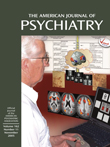To the Editor: We read with interest the clinical case conference by Lois E. Krahn, M.D., and Heydy L. Gonzalez-Arriaza, M.D.
(1). Excessive daytime sleepiness is a common symptom of many sleep disorders, including narcolepsy. It can be difficult to make a firm diagnosis of narcolepsy, especially when the pathognomonic symptom of cataplexy is absent. Even when present, cataplexy rarely occurs in a physician’s office. As mentioned by the authors, some drug abusers fabricate sleep symptoms to obtain psychostimulants.
Although narcolepsy cannot be diagnosed based on the Multiple Sleep Latency Test alone, a properly performed Multiple Sleep Latency Test can help to confirm the diagnosis
(2). Drs. Krahn and Gonzalez-Arriaza discussed some of the challenges of performing the Multiple Sleep Latency Test in a suspected narcoleptic patient. For example, in the excellent case presented, the authors appropriately adjusted the timing of the Multiple Sleep Latency Test and the preceding polysomnogram to accommodate the patient’s delayed sleep phase
(3). However, their patient also had a short habitual total sleep time of approximately 5 hours, as documented by 1 week of wrist actigraphy. The fact that the patient was able to obtain 7.2 hours of sleep during the nocturnal polysomnogram suggests that he may have insufficient sleep syndrome, possibly associated with inadequate sleep hygiene.
At the University of Mississippi Sleep Disorders Center, we emphasize to our patients the importance of allowing sufficient time for sleep by spending at least 8 hours per night in bed in the week preceding a Multiple Sleep Latency Test. Usually a sleep log is used to document the preceding week’s sleep. We commend the authors on the use of more objective wrist actigraphy, which documented a chronically insufficient sleep time but question assigning the diagnosis of narcolepsy to a patient with apparent chronically insufficient sleep.
As Drs. Krahn and Gonzalez-Arriaza illustrated in this case, the diagnosis of narcolepsy must be based on a combination of history, examination, and overnight polysomnogram findings, in addition to the Multiple Sleep Latency Test. As is known, the results of a Multiple Sleep Latency Test are influenced by the quantity and quality of the preceding 7 nights of sleep
(3). Chronic sleep deprivation can mimic narcolepsy on a Multiple Sleep Latency Test. Accordingly, we wonder about the possibility that the Multiple Sleep Latency Test results in the case presented were affected by an accumulated sleep debt that could not be more than partially compensated for by the 7.2 hours of nocturnal sleep preceding the test.

